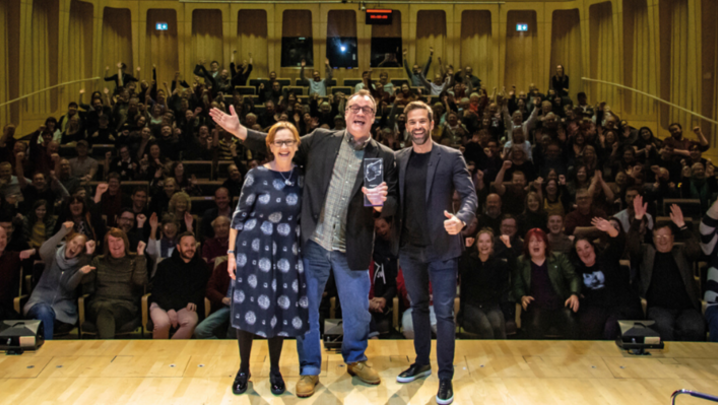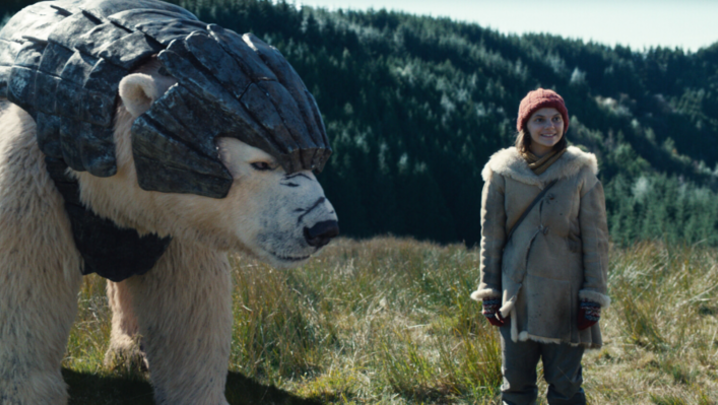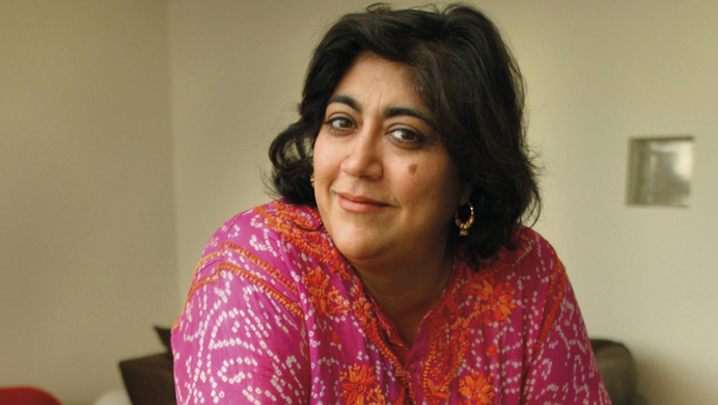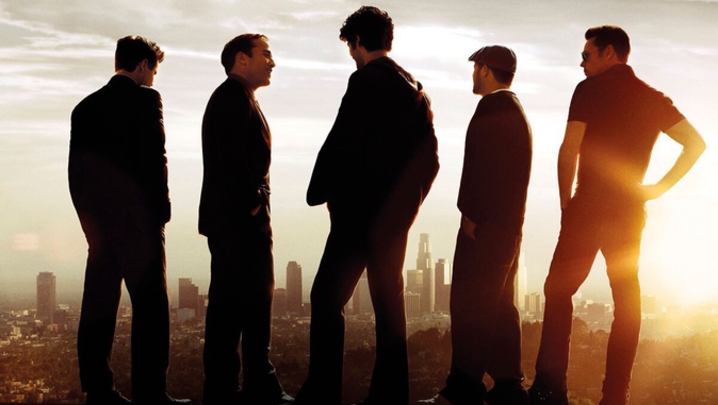The creative team share how they transformed John le Carré’s complex novel into great television. Steve Clarke takes notes.
Few recent TV dramas have brightened up our screens as much as The Night Manager. One critic described the six-part adaptation of John le Carré’s 1993 novel as “the BBC’s glossiest, smartest, most indecently entertaining Sunday-night drama in ages”. Who could possibly disagree?
Certainly not the audience for the latest in the RTS’s “Anatomy of a hit” strand, which heard from three of the key people involved in making the show: director Susanne Bier, screenwriter David Farr and executive producer Simon Cornwell, co-founder of the Ink Factory, the production company set up, among other things, to take control of TV and film versions of stories by his father, David Cornwell, aka Le Carré.
The lavish and exquisitely filmed reimagining of The Night Manager resembled a feature film. There were glamorous and exotic locations, stunning special effects, plus a starry cast.
Thrills aside, the series had much to say concerning the dark and deeply divided times we live in.
The performances from Hugh Laurie, as the amoral arms dealer Roper, and his nemesis, Pine, the damaged secret agent played by Tom Hiddleston, were mesmerising. The acting of the other leading characters was impressive, too – Tom Hollander as Roper’s louche factotum Lance Corkoran, aka Corky, Olivia Colman as Angela Burr and Elizabeth Debicki as Roper’s mistress, Jed.
The capacity crowd at the RTS event learnt how the screen version of Le Carré’s novel experienced several false starts. Cornwell told how the rights to the book were seized by Paramount on publication.
Despite throwing money at the project, coming up with a script that matched the novel’s complexity proved elusive. Even the distinguished screenwriter Robert Towne (an Oscar winner for his Chinatown script) struggled to adapt The Night Manager for cinema.
“It went into a big Hollywood development process but ended up with a worthy script that was nothing special,” Cornwell recalled. “Perhaps that wasn’t surprising, because [the book] is almost 600 pages long and not easy to distil into a 90-minute feature.”
The project languished for several years before Paramount gave it another go – this time in cahoots with Brad Pitt’s production company, Plan B. Once again, the script failed to reflect anything like the depth and subtlety of Le Carré’s original.
Enter English writer and director David Farr, who was approached by The Ink Factory. He succeeded by turning The Night Manager on its head.
“David came up with a brilliant contemporary take… and we were off to the races,” said Cornwell.
There was a measure of surprise that Farr’s script excelled on so many fronts. “With the very honourable exception of the original TV adaptations from the 1980s, if you look at the best adaptations – in a lot of ways, my father is a quintessentially British writer – the best ones, without exception, come from people who are not British,” Cornwell noted.
By moving the story to the Middle East (much of the original was set in Latin America), Farr gave the story a sharp, contemporary edge that resonated with the Cornwells.
“In contrast to a lot of my dad’s work, this was a novel that wasn’t hugely grounded in its time,” explained the producer. He added with understatement: “The general notion that governments collude with bad people to do bad things in difficult places has probably become more prevalent since 1993.”
Farr, whose early career was as a playwright and theatre director, had read The Night Manager in the 1990s but didn’t remember it very clearly.
However, as a child, he had experienced a Damascene moment when his father allowed him to sit up and watch Alec Guinness in Smiley’s People, the BBC’s definitive Le Carré reboot, first broadcast in 1982. “I’d never seen anything like it in my life. For me, it was a seminal piece of TV,” Farr remembered.
"We care because all that’s really going on is two men loving, hating and betraying one another"
He added: “When I reread The Night Manager, I clicked into realising how much more politically incendiary it was. My partner’s father is Arab and I saw it as a story that reflected the Arab Spring.”
While much of the six-part TV series departs significantly from Le Carré’s book, the author has said that, paradoxically, Farr’s adaptation echoes the story’s essence. “My father’s learned that the book has to be the starting point, not the end point for the film-making process,” said Cornwell.
“[The novel has been] updated to the present, it takes place in a different part of the world… [Its] moral heart – in a way, the Smiley character – is a woman (Burr is a man in the book).
“Beyond that, I would say, from the end of episode 4 onwards, we’ve departed quite substantially, even from the plot’s basic elements. You can’t get much freer than that. At the same time, if my father were here tonight, he would say, in lots of ways, that it’s the truest adaptation of his work.”
As far as Farr was concerned, the book’s second half lacked the ingredients that were crucial to a successful TV adaptation. He told Le Carré and, happily, the author accepted his point: “He wasn’t difficult in any way. I explained why it wouldn’t work. I said, essentially, it’s a dual between two guys. In the book, Pine gets locked up and he becomes passive,” said Farr.
“That’s not going to work [on screen] because we are going to have two great actors playing these roles. And, like a great western, we’re going to have to see the final confrontation.…
“I thought he would want to be completely all over it, but he wasn’t. Obviously, he scrupulously read everything that came in and gave very good notes. He is a really creative, collaborative man, fiercely intelligent.”
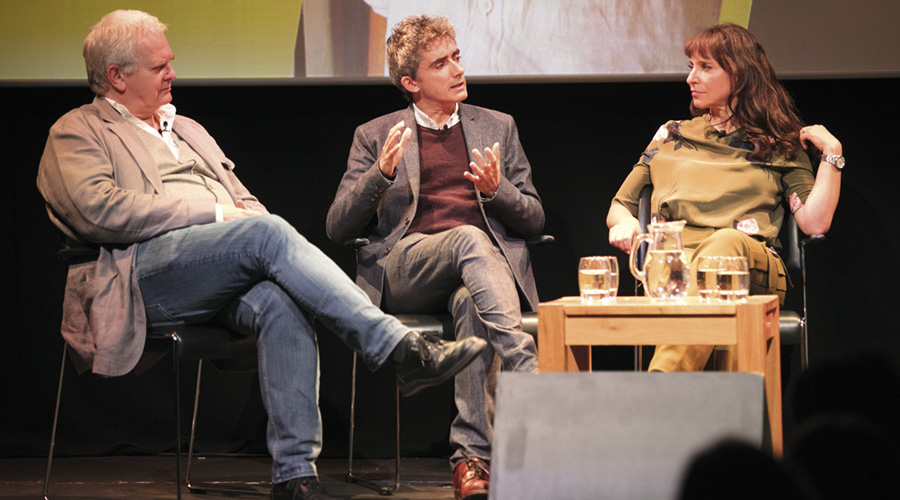
Susanne Bier emphasised: “We were adamant not to disappoint John le Carré in a very profound way.… We all loved his novels so much.… We thought, ‘We’re going to do it the right way.’ He trusted that we wouldn’t disappoint him.”
Much of the credit for the series’ distinctiveness must go to Bier. She is the only living woman to have won an Oscar, a Golden Globe and an Emmy; in September, she was awarded the Emmy for directing The Night Manager.
Bier said she had read the book when it was published. For her, three things from the story stuck in her memory – the excitement of the cat-and-mouse game between Roper and Pine, the character of the dissolute Corky, and the sense of being present on an island.
Her initial reaction to reading Farr’s script was one of foreboding: “I got the first episode that David had written and I was terrified. I thought it’s probably not going to do what the novel does. But it did – but in a very different way.”
She added: “Eighty per cent of screenplays based on literature have an element of something being contrived. This one didn’t. It seemed as if David had a very easy time writing it.”
Bier is convinced that, today, most of the very best screenwriting is done for TV, rather than film: “I’ve probably read 100 scripts in the last five or six weeks and there is no doubt that, primarily, the great writing is in television.”
So why, asked the evening’s chair, Boyd Hilton, did the producers ask her to direct The Night Manager?
Cornwell replied: “If you look at her body of work, it was very often very intense. At the same time, it has a very delicate understanding of relationships and how narrative develops though relationships and through character.
“A lot of people think of Le Carré as a very political writer. Yet, at the end of the day, all of his books are love stories. This was something that Susanne instantly understood.”
He continued: “The suspense is essentially between two people.… It’s all about betrayal and loss: the things we could have done together had we trusted each other, but we never did.”
Explained Bier: “To avoid any misunderstanding, the love story of this novel is between Roper and Pine. There are other love stories going on, but the primary love story is between Roper and Pine.…
“That is the engine. There’s been so much talk about Jed and Pine, [but] it’s still secondary to the main story.”
Does their relationship have a homoerotic quality, asked Hilton. “To me, that aspect is not that interesting, [but] there is definitely an obsession. They are completely fascinated by one another,” said Bier.
“There’s a father-son thing clearly going on,” stressed Farr. “Pine’s father is dead. Roper’s son is either a disappointment or too young to take the mantle on.
“Roper is like a malevolent Shakespearian king, seeking an heir because he can’t be immortal. The great thing about those sorts of characters is the one thing they can’t defeat is death. They hate it. They’ve got all the money in the world but they can’t defeat death. How you defeat death is through having an heir.”
"I didn’t want to make a show where she’s just eye candy, a hot girlfriend…. She is really interesting"
Some critics have wondered at the suspension of belief required for the narrative to click into place: why was someone as worldly and cynical as Roper not suspicious of Pine?
Didn’t he suspect that Pine was an MI6 plant? “Some part of that has to be delusional,” countered Farr. “He has just decided that this beautiful boy who arrives at his doorstep – and there is a homoerotic quality in a gentle way – is a little him. He invests in that. That’s the humanity in Roper that makes him interesting and flawed....
“We care because all that’s really going on is two men loving, hating and betraying one another, for all sorts of complicated reasons.”
Did Bier approach it differently from directing a feature film? “No… the series is shot like a very long film…. Coming from features has given me a certain enjoyment of seducing audiences. It is fun to seduce an audience and think, ‘This is fun, this is going to be different.’”
Did you all sit down and talk about the visual look of The Night Manager and the tone, asked Hilton. “It came from Susanne,” insisted Cornwell. “Having one single director on board was fundamental to our approach. We wanted a single, authorial stamp.”
“My taste normally is a bit more austere,” explained Farr. “Susanne was totally responsible for this beautiful, glorious, visual feast.
“Where we connected completely was Simon’s point about the love story. This is really about power, love and betrayal.”
Bier on making Burr female
Susanne Bier: ‘Stephen Garrett [one of the executive producers on The Night Manager] told me when I first came on board that [they were] talking about whether [they could] change one of the characters from a man to a woman.
‘I said, “Yes, absolutely, you have got to do that.” Fortunately, the world today is slightly different to how it was in 1930. Burr is the moral heart of the novel, so it seemed right to make the character a woman...
‘Olivia Colman’s team is actually – ethnically, age wise and in terms of gender – extremely complex. Roper’s world is very Caucasian and pretty male, not in the most clichéd of ways, but it is a male world.
‘Colman’s world is very diverse and it was a very conscious choice. It might defy expectations, but it lends itself to reality…. It subconsciously sent the message which is the political message of the book.’
Farr on filling out Jed’s role
David Farr: ‘I was getting lots of notes, “Make Jed more interesting, give her a bigger part, give her more to do.”
‘As a writer, when you get a note like that you think, “That’s never going to work. That means the problem is somewhere else.”’
Susanne Bier: ‘But you did make her more interesting.’
David Farr: ‘I did, but that was after I’d already made her interesting.’
Susanne Bier: ‘I didn’t want to make a show where she’s just eye candy, a hot girlfriend…. She is really interesting.’
What about a sequel?
Simon Cornwell: ‘The broadcasters would love to have another series. In lots of ways, I think we would love to do another series.
‘It is new territory. There is no book. There’s never been a Le Carré story that’s been extended beyond the confines of a novel. It would be interesting and exciting to try that.
‘I think the one thing I can safely say we wouldn’t do is something that we didn’t feel had a fighting chance of being even better than the first one.
‘We might succeed… if you don’t go in with that ambition, there’s no point in doing it.’
Bier on how to rehearse
Susanne Bier: ‘I think read-throughs are crucial. I know that, in traditional Hollywood, or even in traditional TV, it is mostly about investors signing off on the text.
‘But I think that it is a hugely important creative element because you do have a sense of what is working…. There are lots of crucial things that you learn from a read-through.
‘Every day, I rehearsed for at least an hour – with a difficult scene, it could be up to two and a half hours. Then the crew comes. Actors have long days, but they like it because they own the set and they own the scenes.
‘Once the crew comes on board, they feel quite confident and excited about what they’re going to do each day.…
‘Tom [Hiddleston] had the novel on set. Tom is a fantastic actor and a wonderful guy to be around, but he has a slightly different sense of time to everyone else. He would read pages from the novel… All the crew were going crazy because it’s shot rather fast.
‘At some point, he sat the DoP down – the crew were waiting for him to give instructions – and he started reading. It was hilarious.’
‘The Night Manager: Anatomy of a hit’ was an RTS early-evening event held at Kings Place, central London, on 10 October. The producers were Sally Doganis and Barney Hooper.



